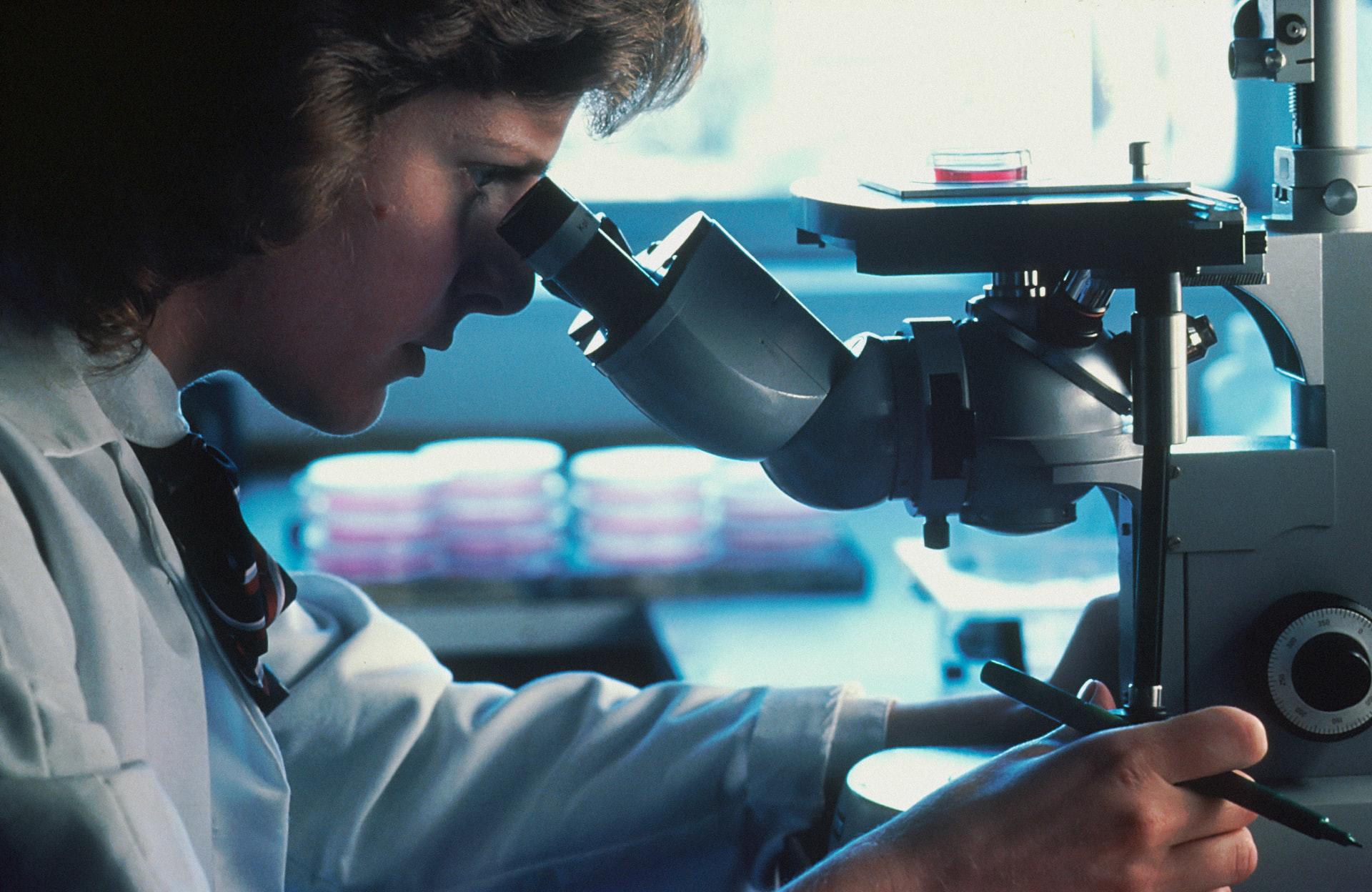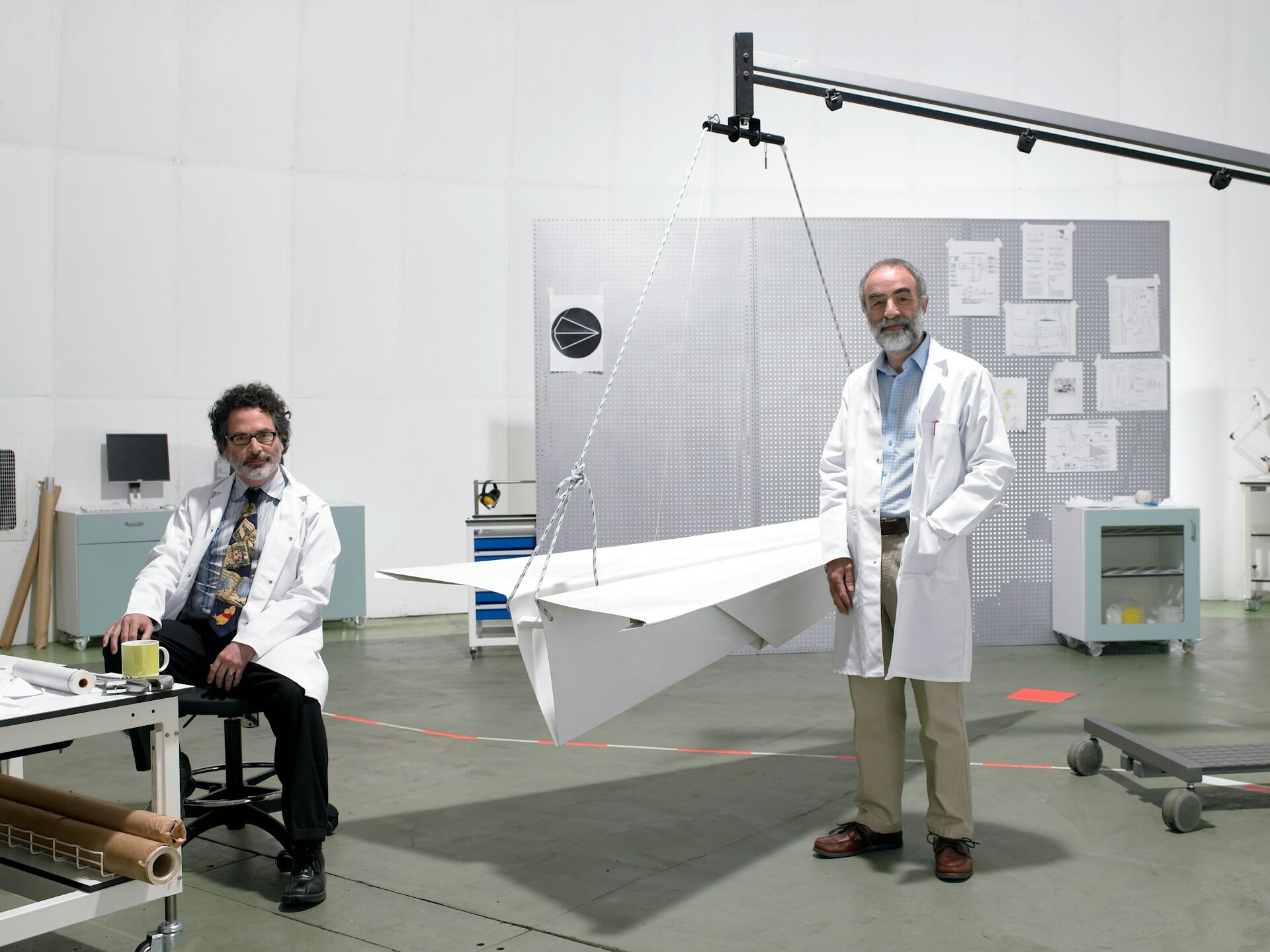If you're currently studying or majoring in biophysics or just thinking about it, you'll probably be quite interested in where your degree will take you.
In case you didn't know, biophysics is an interdisciplinary field that uses physics approaches and methods to better understand biological systems and phenomena. Studying it involves covering a lot of both physics and biology and, as a result, biophysics graduates are in the fortunate position of being both quite rare and also versatile enough to work in a wide range of fields.
As you'll see from the plethora of fields open to biophysicists, majoring in biophysics has the combined benefit of leaving you with lots of options while also making you one of a small number of students that actually major in it!

Stay in Academia
As you reach the end of your biophysics degree, which is quite an achievement on account of how difficult biophysics can be, one obvious option is to stay in academia. For one, there are many biophysics jobs and career opportunities that require more than just an undergraduate degree.
Book a private class online or in person with a physics tutor.

Before you can think about a biophysics career in teaching or research, you'll need to look into studying for a master's degree in biophysics and even completing your Ph.D. For this, there are some great schools for majoring in biophysics.
It's certainly not obligatory, but once you've completed a Ph.D. in biophysics, it's quite likely that you'll have committed to remaining in academia. Of course, you can still complete a Ph.D. and leave academia, but it's quite a common route taken by academics.
The most common career path through academia is to complete your undergraduate, master's degree, Ph.D., and then spend your career in schools, colleges, or universities leading teams of students or researchers while you teach and conduct research.
You'll also be part of the world of academia where you'll likely attend conferences, colloquiums, seminars, etc.
How much you teach and how much you research will depend on your role within the college or university, but most professors in academia do both. It's part of the deal when an academic institution employs a professor.
Academic or Clinical Research
While you could also conduct research while remaining in academia, there's also the option to be a dedicated researcher in a variety of different fields without necessarily being tied to academia or having to teach.
Obviously, research still ends up in the world of academia, but you could focus on clinical research in the pharmaceutical industry, for example. Biophysics also lends itself to medicine so you could move towards medicine, treatments, and diagnostic tools that rely on biophysics research.
You could also be involved in research for the cutting edge of biophysics technology, which can often include instrumentation (observation is a big part of how physics approaches allow us to understand biology) or specialist biophysics devices, tools, or even approaches.
If you enjoy working things out, analyzing data and results, and coming to informed conclusions, moving directly into research might be the perfect career choice for you as a biophysicist.
Find out more about the main differences between biophysics and physics.
Teaching
If research or academia is not for you, you can always consider becoming a tutor for physics online or teaching at a school.While you won't get to teach as much biophysics in a school, you could always teach science. Normally, to go into teaching, you'll need a master's degree and/or a postgraduate teaching qualification.

Teaching can be a really rewarding profession and anyone with a degree in biophysics will know enough about science to be able to teach it to either elementary, middle, or high school students.
Of course, teaching isn't just about knowing your subject, it's about knowing how to teach, which is why most teaching roles require another qualification to accredit your understanding of pedagogy, teaching approaches, classroom management, etc.
Ironically, professors in colleges and universities don't always have teaching qualifications and while undoubtedly experts in their field, their skills as educators aren't always guaranteed, something you may experience first-hand, depending on where you go to school...

Radiology and Medical Imaging
Those interested in radiology can move toward the field from a background in biophysics. After all, radiology, the medical discipline concerned with medical imaging for the diagnosis and treatment of diseases, is very closely related to biophysics.

While there are ways of specializing that lead directly into radiology, there's no reason a student can't major in biophysics first to leave their options open and later decide to specialize in radiology. Admittedly, this route will add a few years to the route, but it's still a possibility.
Medical physics, like radiology, is considered to be a branch of biophysics anyway so an undergraduate degree in biophysics is a good way to gain the foundational knowledge and skills required to move into these branches with further study.
There are also fields related to radiology that are a good fit for biophysicists and medical imaging, for one, is a perfect career choice for anyone who knows a thing or two about biophysics.
You may even consider going beyond just using the technology.
Medical Technology Development
You can be involved in medicine without directly being involved with patients. Developing medical technologies, for example, isn't patient-facing but it's still a massively important biophysics career choice that can change lives for the better.
Medical technology is a massively broad field, but those with a background or degree in biophysics would most likely find themselves in one of two main fields: medical imaging or medical nanotechnology and nanomedicine.
Much like with radiologists, medical imaging relies heavily on biophysics and applying physics to biological systems so medical imaging technology is naturally where biophysicists may find themselves.
There's more than just the development of the technology, though, and you could even look to being responsible for selling it.
Marketing
If you know a thing or two about biophysics and the devices, products, or technology coming out of the field, you'll probably be able to sell them.
Of course, you need more than just a degree in biophysics to sell products, but as a biophysicist, you'll know what buyers are looking for in a given product when telling them about it.
Whether you work as a seller and visit prospective clients or in the marketing behind products and technology, your knowledge in biophysics will help you know exactly what makes something worth buying or not, and you can use that to your advantage when convincing customers to buy.
Depending on the company and its marketing approach, they could be looking for biophysicists willing to learn more about marketing or marketers willing to learn more about biophysics. Because of this, it's always worthwhile doing a bit of research into how each company operates before applying for jobs.
Science Writing
If you really enjoyed the writing side of your degree, then a move into the crossroads between journalism and science – science writing.
Your job will be to research, write, and edit news articles and features about science and it'll be your background and understanding of science and biophysics, more specifically, that allow you to do this.

You could be employed by a publication and responsible for their science-related content or you could be hired as the writer for an academic institution, research group, or private company and responsible for getting the word out about work and research through journals, press kits, press releases, and websites.
This is an interesting field to work in as you may either be writing for a scientifically-literate audience with the same background and expertise as you or you may be responsible for writing content to be read by those specializing in other fields or with no science knowledge whatsoever.
The latter example can sometimes be more challenging as you straddle the fence between ensuring what you write is still accurate while ensuring that it can be understood by anyone regardless of how much science they've studied.
Science Policy
Perhaps you're interested in a role in government or a government agency. When it comes to science policy, it's either politicians or scientists putting it together.
With a degree or background in biophysics, there's a wealth of different roles in which your experience and expertise could be applied.
At every level of government policy concerning science, it's important that those who understand it are there and calling the shots! This isn't always the case, but it can certainly make arguing the case far easier for your inclusion in the groups that decide science policy.
Where exactly you'll be working, we can't say, but there are positions at every level across many different branches of government that would do well to have a biophysicist helping them to decide their science policy.
These aren't the only careers you can find with a biophysics degree, but they're some of our favorites. One of the best things about studying biophysics is that it'll open a lot of doors in terms of career paths and can give you a lot of choices while also making you one of the few students that major in it.
There's no problem with having plenty of options while also having a really unique major on your résumé!
Find a physics tutor near me and get learning today when you search on Superprof!
Summarize with AI:
























